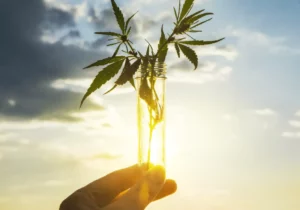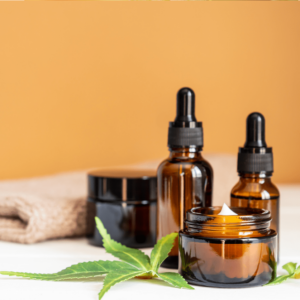Hello and thank you for the great question,
Diabetes is associated with high levels of fasting insulin and insulin resistance, as well as low levels of HDL (good cholesterol). In 2013, the results of a five-year study into the effects of cannabis on fasting insulin and insulin resistance were published in the American Journal of Medicine.
The researchers found that current users of cannabis had
16% lower fasting insulin levels than respondents who had never used cannabis, and
17% lower levels of insulin resistance and higher levels of HDL.
Respondents who had used cannabis in their lifetime but were not current users showed similar but less pronounced associations, indicating that the protective effect of cannabis fades with time.
The researchers also ran analyses on the data that excluded individuals diagnosed with diabetes. Even after excluding diabetics, current cannabis users were found to exhibit reduced fasting insulin and insulin resistance levels, indicating that cannabis can help prevent the occurrence of diabetes as well as alleviate symptoms in diagnosed cases.
https://www.amjmed.com/article/S0002-9343(13)00200-3/fulltext
drkim
There have also been a few preclinical studies showing promising results, which may help explain the above results.
https://www.projectcbd.org/diabetes.
"We now report that CBD treatment significantly reduces the incidence of diabetes…from an incidence of 86% in non-treated-control mice to an incidence of 30% in CBD-treated mice…possibly through an immunomodulatory mechanism"
https://www.ncbi.nlm.nih.gov/pubmed/16698671
Researches conducting a similar study found that only 32% of CBD-treated mice in the early stages of diabetes progressed to overt diabetes, whereas 100% of the non-CBD-treated mice did progress to overt diabetes. In other words, CBD halted the progression of pre-diabetes in 68% of the CBD treated mice.
https://www.ncbi.nlm.nih.gov/pubmed/17714746
There was also a very recently published randomized, double-blind, placebo-controlled study (the gold-standard of study design) which found that in humans:
- THCV significantly decreased fasting plasma glucose and improved pancreatic β-cell (insulin secreting cell) function
- CBD reduced a hormone called resistin, which has been shown to increase LDL (bad cholesterol)
-CBD increased glucose-dependent-insulinotropic peptide, which is a hormone that enhances the release of insulin following the intake of food.
https://www.ncbi.nlm.nih.gov/pubmed/27573936
For more information on THCV:
https://www.hellomd.dev/health-wellness/5a8db389f24d1300077ccb5a/psychoactive-thcv-the-cannabinoid-that-kills-your-appetite
drkim





